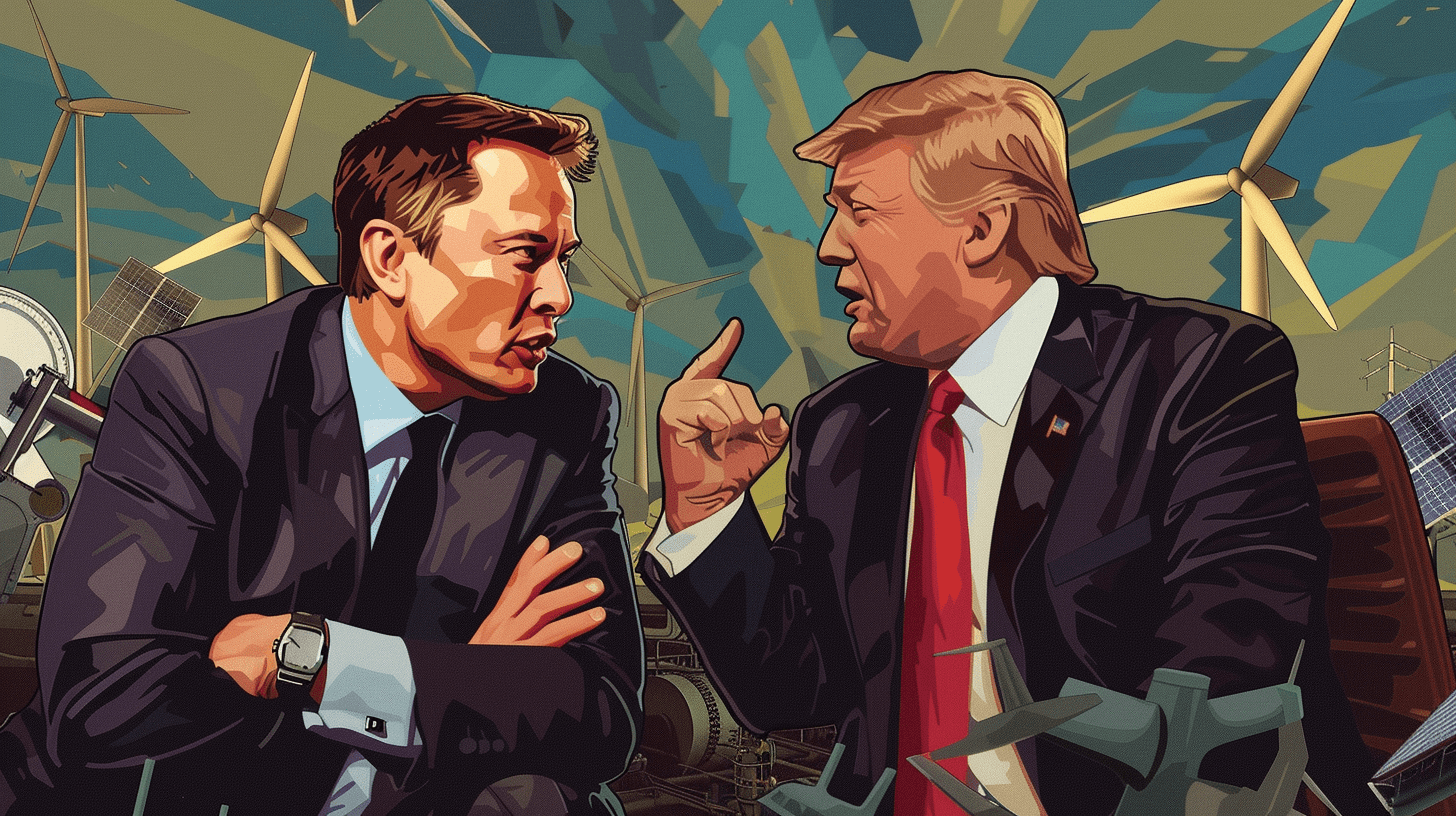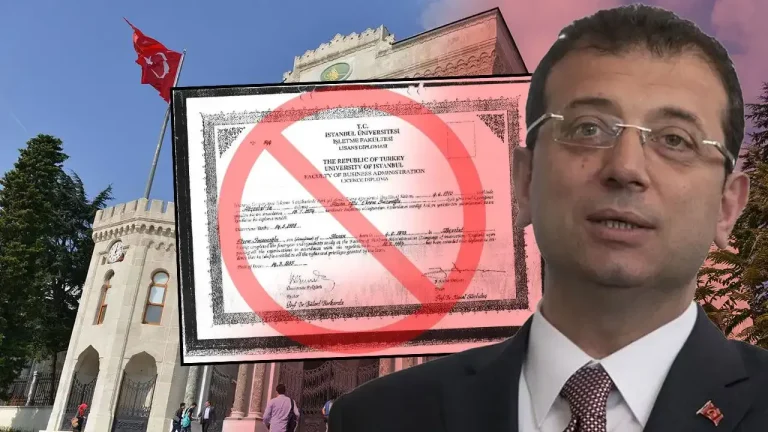Elon Musk vs. Donald Trump: A Hypothetical Story of Power, Ego, and Innovation
It was bound to happen. In a country where billionaires like Elon Musk and Donald Trump shape policy as much as politicians, and where Twitter wars sometimes hold more weight than legislative decisions, a showdown between them was inevitable. Musk, a visionary entrepreneur with an obsession for the future, and Trump, a businessman-turned-president who thrives on controversy and power, were destined to clash. Their collision would not be subtle it would be explosive.
From Silicon Valley boardrooms to Mar-a-Lago golf courses, the rivalry between Musk and Trump grew over time, fueled by ideological clashes, economic interests, and, most importantly, Twitter feuds. This wasn’t just about politics; it was about dominance, ego, and the future of America itself.
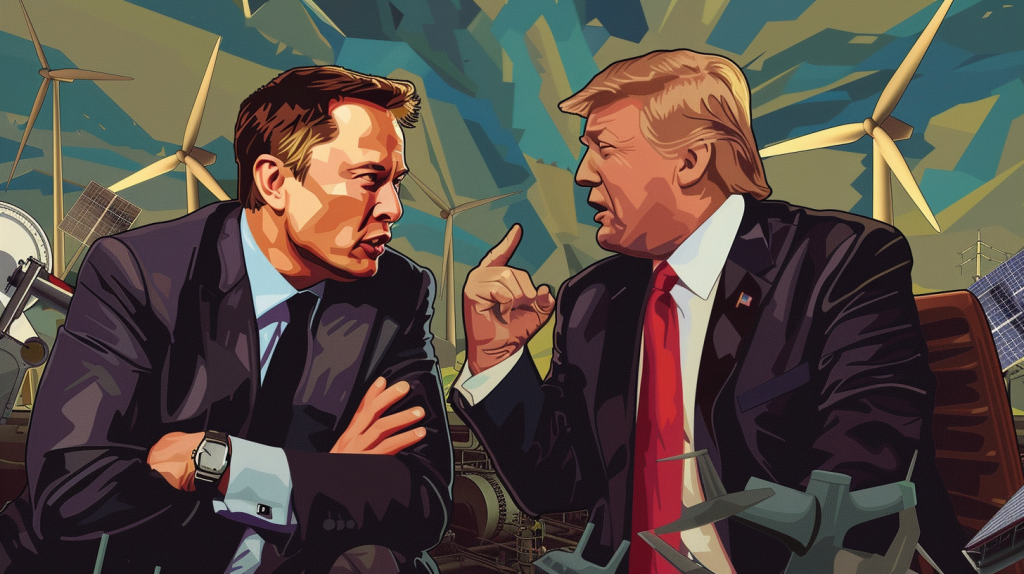
Chapter One: The Seeds of Conflict
The first public rift began in 2017 when Trump withdrew the United States from the Paris Climate Agreement. Musk, still a member of Trump’s advisory council at the time, made a dramatic exit, stating, “Climate change is real. Leaving Paris is not good for America or the world.” Trump, of course, retaliated with a dismissive tweet: “We don’t need failing tech guys telling us what’s good for America.”
But that was just the beginning. Over the years, their relationship oscillated between moments of cooperation and outright hostility. Musk, despite his libertarian leanings, found himself increasingly at odds with Trump’s nationalist, anti-regulatory stance. While Trump boasted about bringing back coal jobs, Musk was building rockets, electric cars, and AI systems to make coal irrelevant.
Their competition wasn’t just ideological it was financial. Tesla, SpaceX, Neuralink all of Musk’s ventures depended on a mixture of private investment and government contracts. Trump, always skeptical of the so-called “tech elite,” saw Musk’s growing influence as a direct challenge to his own legacy. When Trump launched his own social media platform, Truth Social, Musk took it as a personal insult, especially when Trump publicly rejected Twitter after Musk’s controversial takeover.
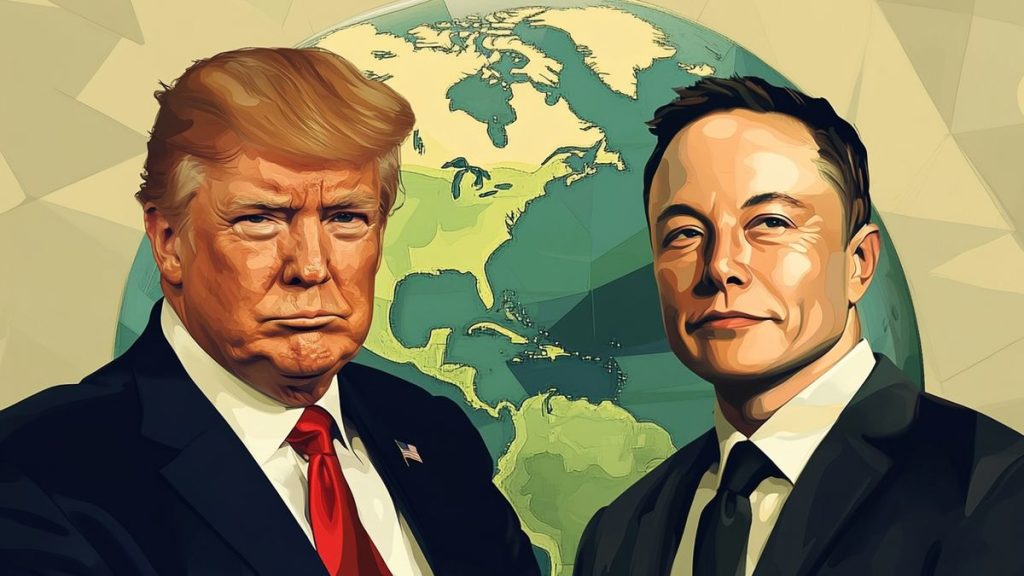
Chapter Two: The Cyber Feud
2024 marked the peak of their conflict. With Musk firmly in control of Twitter (rebranded simply as “X“), Trump found himself permanently reinstated but not entirely welcomed. Musk, a self-proclaimed “free speech absolutist,” believed in platforming all voices, even those as polarizing as Trump’s. However, that didn’t mean he had to like it.
Trump’s return to X was met with a Musk-driven algorithm change that suppressed divisive content. Trump noticed, and he was furious. “Elon Musk is another fake billionaire trying to control what real Americans think!” he raged in a video on Truth Social. Musk, never one to back down, tweeted in response, “Stable genius, huh? Seems pretty unstable to me.”
The digital war escalated. Musk released a new AI chatbot that fact-checked political statements in real-time. Trump supporters called it biased. Trump, in response, publicly declared he would launch an investigation into Tesla’s alleged ties to China. Musk, unfazed, simply posted a meme of a Tesla Cybertruck plowing through Mar-a-Lago.
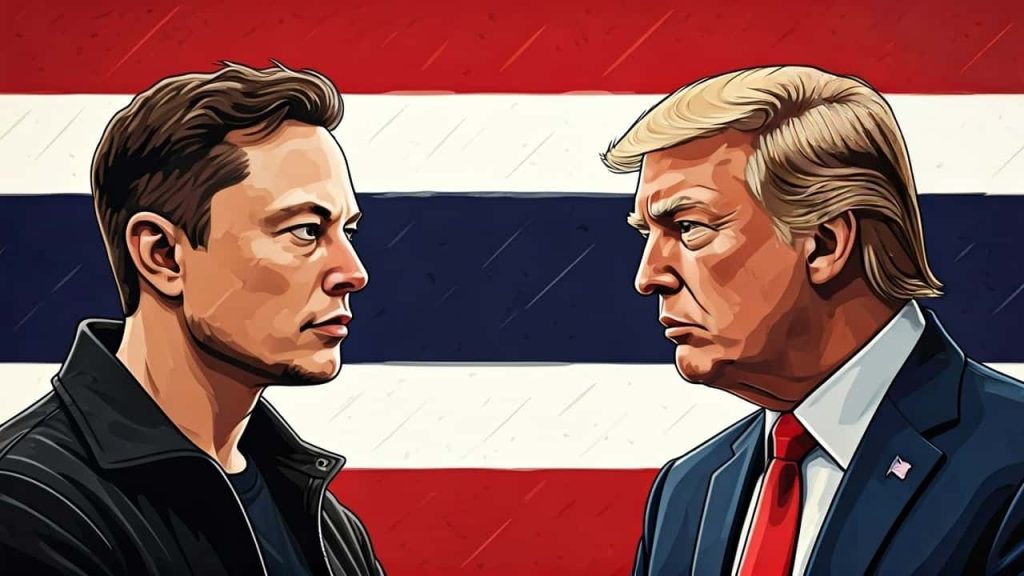
Chapter Three: The Physical Showdown
It wasn’t long before their rivalry left the internet and entered the real world. At a billionaire-filled gala in New York, Musk and Trump were seated uncomfortably close. Witnesses reported icy glares, forced handshakes, and at one point, an argument so heated that Mark Cuban had to step in to separate them.
The breaking point came when Trump suggested on live television that Musk was “overrated” and “not even American-born.” Musk, never missing an opportunity for the dramatic, challenged Trump to a public debate: “One hour. Any topic. No moderators.”
Trump agreed. The event, hosted at SpaceX headquarters in Texas, was billed as “The Future of America: Musk vs. Trump.” Millions tuned in, expecting fireworks, and they weren’t disappointed.
For an hour, the two titans clashed. Trump boasted about his economy, Musk countered with statistics on AI job growth. Trump mocked Musk’s “weird robot projects,” Musk pulled out charts on automation. By the end, it was clear: neither man had won, but America had witnessed something unprecedented a raw, unscripted battle of egos and ideologies.
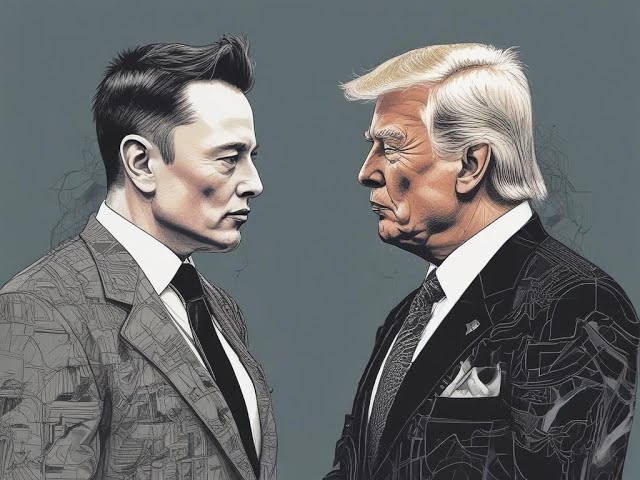
Quotes List
- “Climate change is real. Leaving Paris is not good for America or the world.” – Elon Musk
- “We don’t need failing tech guys telling us what’s good for America.” – Donald Trump
- “Free speech means hearing things you don’t like. That includes Trump.” – Elon Musk
- “Elon Musk is another fake billionaire trying to control what real Americans think!” – Donald Trump
- “Technology doesn’t care about your politics. It just moves forward.”
In the end, neither Musk nor Trump truly won their battle. Their feud represented more than just personal grievances it was a reflection of America’s internal struggle between innovation and tradition, progress and populism, the future and the past.
For Musk, the fight wasn’t about Trump alone but about ensuring that technology and science would guide the nation’s future. For Trump, the battle was about maintaining control, about proving that he was still the ultimate disruptor in American politics.
Their conflict may have been personal, but it was also symbolic. And as America watches, one thing remains clear: the future belongs to those who shape it, not those who are tired of change and fear it.
